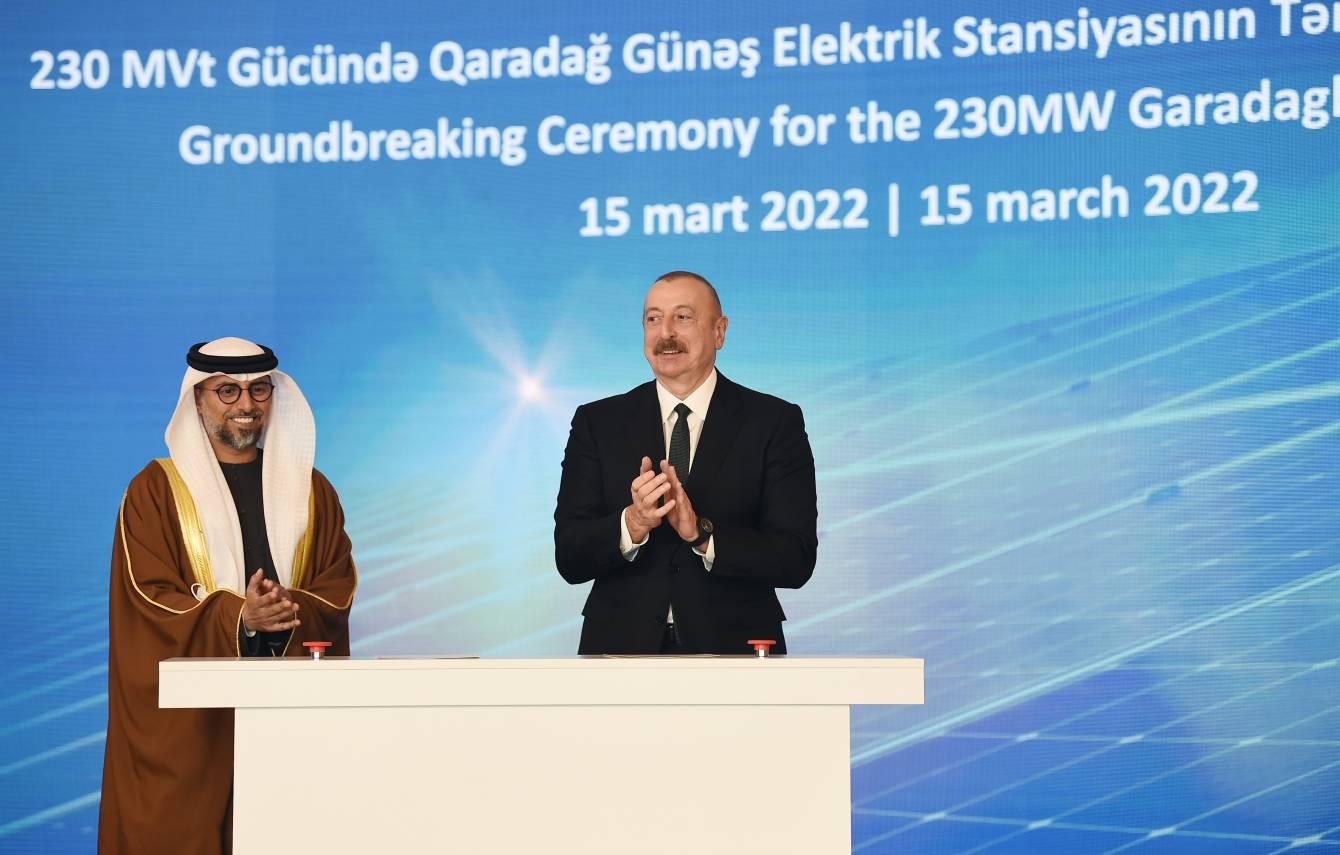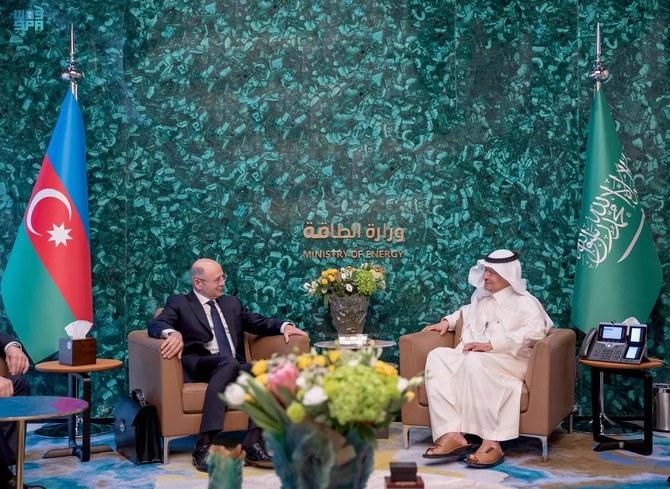Azerbaijan’s green energy policy paves the way for closer ties with the Gulf region
On January 8, the President of the United Arab Emirates (UAE), Mohammad bin Zayed (MbZ), paid an official visit to Baku to meet his Azerbaijani counterpart, Ilham Aliyev. The meeting’s main agenda focused on the economy, renewable energy, the environment, culture, and education as the two leaders bid to enhance sustainable development in their countries.
Sheikh Mohamed highlighted that non-oil trade volume between the two countries has increased in recent years, emphasizing that the UAE views stability and development in the Caucasus region as important.
This high-level visit builds upon a series of successful energy deals struck between Emirati entities and Azerbaijan over the past year. In 2022, the UAE invested in a renewable energy field in Azerbaijan, namely the Garadagh Solar Photovoltaic Power Plant, launched by the Abu Dhabi Future Energy Company.
On May 16, 2023, the Garadagh Solar Power Plant installed the first solar panel. In addition, in the same period, the Khizi-Absheron Wind Power Plant project was prepared and presented. The project is being implemented in Absheron-Khizi near Pirakashkul and Sitalchay.
This project embraces Azerbaijan’s agenda to replace natural gas with renewable energy and export it. Chief power engineer of Azalternativenerji LLC, a subordinate of Azerbaijan Renewable Energy Agency, believes that constructing renewables in the Absheron region will bring financial benefits to the country by increasing the export of gas that alternative energy facilities have replaced.

According to preliminary analysis, the total technical potential of wind energy in the Azerbaijani part of the Caspian Sea was estimated at 157 GW. Since 2021, the Azerbaijani government has embarked on developing a green energy field to be able to export it to foreign countries, mainly to Europe.
The country’s authorities intend to increase the share of renewable energy sources in the country’s overall energy production to 30 per cent by 2030. Azerbaijan has adopted the Law on the Use of Renewable Energy Sources (RES) to make this happen.
Currently, the figure is about 17%, mainly consisting of hydropower. However, recent developments in Azerbaijan's renewable energy sector promise to boost this through using wind and solar energy. In line with this, several leading countries, like the UAE and Saudi Arabia, have agreed to invest in Azerbaijan's green energy field.
For example, the Minister of Investments of Saudi Arabia, Khalid bin Abdulaziz al-Falih, said the Saudi government intends to implement more energy projects in Azerbaijan and join the agreement signed recently by Azerbaijan, Georgia, Hungary, and Romania to export Azerbaijani electricity to Europe. Saudi Arabia and Azerbaijan will also work on technologies such as carbon capture and storage to mitigate the effects of climate change.

According to media reports, Azerbaijan has attracted foreign investment in the green energy sector of around $300 million and $200 million in the second half of 2023.
Considering the prospects of renewable energy and Azerbaijan’s potential, more Gulf countries are eager to invest. For example, in February 2023, Azerbaijan's energy minister, Parviz Shahbazov, was in Qatar for talks with his counterpart Saad Sherida Al-Kaabi and with Doha-based Nebras Power. On the agenda were proposals for a 550 MW gas-fired plant and 100 MW of wind power.
By developing more wind and solar plants to supply the domestic market, Baku hopes to free up more gas to sell abroad. Therefore, the UAE President’s visit to Baku should come as a little surprise. By investing in renewable energy, sustainable infrastructure, and climate-adapted agriculture, Azerbaijan can reduce the negative impacts of climate change and contribute to economic stability.
Moreover, Azerbaijan encourages other foreign operators based in the country, such as the UK's BP, to contribute to the development of the green energy field. In this vein, BP Azerbaijan built a solar power plant in the liberated Zangilan/Jabrayil region in 2021 in partnership with the government.
Azerbaijan's pivot toward the wealthy Gulf countries is a viable option to attract more investments in local renewable energy field development. This policy will enable Azerbaijan to gradually shift from a fossil fuel exporter to a reliable green energy exporter to Europe and the Middle East. The successful implementation of all tasks within the 2030 strategic plan will ensure the flow of additional investments from foreign countries and global companies.








